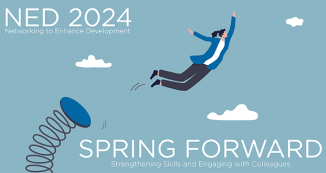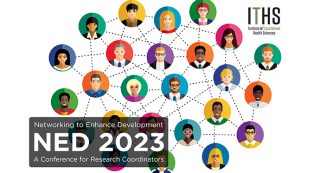06 May Top Seven Takeaways from 2014 NED Conference
 The Institute of Translational Health Sciences hosted the Third Annual Research Coordinator Networking & Education Day (NED) on April 25, 2014, at the University of Washington. This professional development conference brought together research coordinators from UW, Harborview Medical Center, Seattle Children’s Hospital, Seattle Cancer Care Alliance, Fred Hutch, Swedish Medical Center, and Veteran’s Administration Puget Sound Health Care System to share clinical and translational research best practices.
The Institute of Translational Health Sciences hosted the Third Annual Research Coordinator Networking & Education Day (NED) on April 25, 2014, at the University of Washington. This professional development conference brought together research coordinators from UW, Harborview Medical Center, Seattle Children’s Hospital, Seattle Cancer Care Alliance, Fred Hutch, Swedish Medical Center, and Veteran’s Administration Puget Sound Health Care System to share clinical and translational research best practices.
“This year’s conference highlighted the tremendous amount of experience research coordinators have,” said conference co-organizer Karen Adams of the ITHS Research Coordinator Core. “It was easy to see the valuable role that coordinators play in the progress of medical science.”
Conference participants discussed challenges, networked with their peers, and exchanged tips on how to improve the day-to-day support of clinical research. According to Adams, the top seven takeaways for research coordinators from the day’s activities were:
- Always go to the institution’s website to download up-to-date documents to avoid study start-up delays
- Sit down with the principal investigator early on to discuss what is considered research and what is considered routine clinical care for a specific study.
- Identify the Institutional Review Board (IRB) you will be submitting to and know the consent form template you should use when your work crosses multiple institutions.
- It is always good to review the definitions of Adverse Events and Serious Adverse Events since the criteria is always being updated. Of particular importance is when you need to report and to whom.
- A research coordinator needs to be ready to be an impartial mediator between two disagreeing investigators in their Adverse Events evaluations.
- A transparent audit process ensures that everyone involved with the audit—from the investigator to the department chair to the medical director to the IRB—is involved and understands their roles.
- Frequent and clear communication is the key to managing relationships in multi-site studies.
The following conference presentations are available for download:
Navigating The Research Start-Up Process – What should come first?
Amy Deyle, RN, Research Nurse, UW ITHS
Adverse Events – Love Them, Hate Them, but Report Them
Billi Tatum, RN, CCRC, Research Nurse, UWMC/HMC Regional Vascular Center






